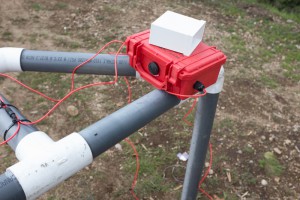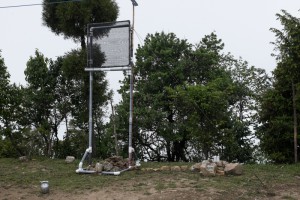Below are a few news items that we’ve sent out on our newsletter and posted on our Facebook page over the past few months.
7th International Conference on Fog,
Fog Collection, and Dew
Wroclaw, Poland 24 to 29 July, 2016
A very successful conference was held this summer in Poland, with about 125 delegates from about 30 countries attending. This is the seventh in a conference series that was started by Dr. Robert Schemenauer, the Executive Director of FogQuest, in 1998. The conference is not operated or sponsored by FogQuest but we endorse the efforts to enrich the knowledge base that can lead to successful uses of fog and dew as water supplies and to demonstrate to scientists working in the atmospheric sciences, as well as hydrology and related sciences, that there are important practical applications to their work.
Two papers were presented (see below) describing ongoing projects of FogQuest. One discussed the project in Tojquia, Guatemala from 2006 to 2016. The other discussed the fog collection projects in Nepal from 1997 to 2016. Dr. Robert Schemenauer attended the conference* as a representative of FogQuest and made a 15 minute presentation on the work in Nepal. Mr. Nicolas Zanetta from Chile represented both the Atacama Desert Center in Chile where he works and FogQuest where he is an important volunteer. Nicolas gave a one minute introduction to the work in Tojquia and interacted with the delegates at the associated poster paper.
The conference was a wonderful opportunity to exchange information and to meet colleagues from diverse backgrounds working in all parts of the world. It was also an opportunity to meet old friends. Pablo Osses went to Nepal almost 20 years ago to install the first small Standard Fog Collectors and to train local groups on the construction of Large Fog Collectors. He is now a Professor at the Catholic University of Chile in Santiago. Nicolas Zanetta is a young man who brings experience and great enthusiasm to our present project in Guatemala and this week will go to our new evaluation project in Nicaragua.
(*Dr. Schemenauer paid personally for his travel to Poland for the conference and Mr. Zanetta’s funds came from other sources. No donations to FogQuest were used for travel.)
Conference Papers Available for Download
7th International Conference on Fog,
Fog Collection, and Dew
Wroclaw, Poland 24 to 29 July, 2016
The two conference papers presented on FogQuest work in Guatemala and in Nepal can be downloaded below. The entire conference proceedings volume is also available for download here.
Broadview Avenue Public School
Fundraising Event
FogQuest received a very generous donation from the Broadview Avenue Public School located in Ottawa, Ontario, Canada. The school put on a fundraising event earlier in the year. The theme was clouds, fog and raindrops. Our thanks to a teacher, Ms. Darlene Morrow, who initiated the event and all of the students who worked so hard to raise the funds. We will use the donation to help with our ongoing project in Tojquia, Guatemala.
























